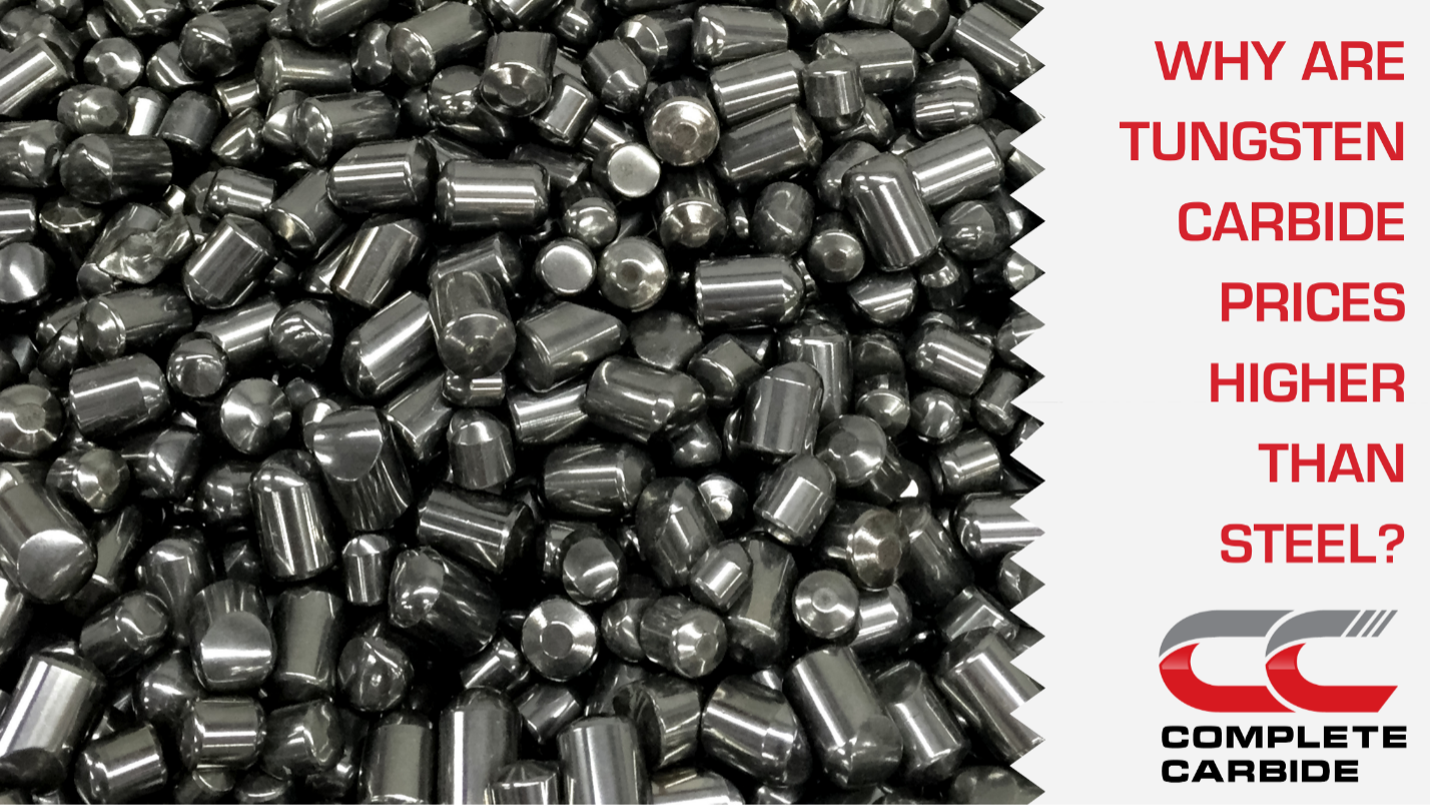
Why Are Tungsten Carbide Prices Higher Than Steel?
If you’ve purchased any tungsten carbide rods or standard tool blank (STB) strips lately, your heartbeat is probably still recovering from the sticker shock.
Of course, it’s not the only wholesale material to shoot up in price, but what is it about tungsten carbide that caused this particular spike? After all, the price of high-speed steel hasn’t fluctuated nearly as much in recent months.
Well, the answer may not be as straightforward as a simple supply and demand scenario. In fact, the current price of tungsten carbide is dependent on a combination of the following five factors.
1. THE RAW MATERIALS COST MORE
One of the largest driving forces behind the price of a product is the cost of its raw materials, and when it comes to carbide and steel, that’s certainly no exception. Steel is primarily made from iron ore, with small amounts of carbon to improve its strength. Currently, iron prices are down over 30% from the same time last year, selling for roughly $85 per metric ton.
Compare that to tungsten, which in 2020 was selling for an average of $270 per metric ton. That’s over 3 times as much as iron! Not to mention that most tungsten carbide cutting tools contain a small percentage (usually 10-12%) of cobalt, which is currently going for over $53,000 per metric ton.
2. COBALT IS CURRENTLY IN VERY HIGH DEMAND
Speaking of cobalt, there are several reasons why its prices have been skyrocketing lately. While not an especially rare metal, it has become an increasingly important commodity in recent years thanks to the fact that it’s a key material for the positive electrodes in lithium-ion batteries.
In fact, two of the fastest-growing product sectors in the past few years have been smartphones and electric vehicles, both of which feature rechargeable lithium-ion batteries. When you consider the demand for these products and the high-profile companies that manufacture them, it should come as no surprise that cobalt is in very short supply for the average tungsten carbide toolmaker.
3. TUNGSTEN CARBIDE IS HARDER TO MAKE
Steel has been around for thousands of years and is—relatively speaking—pretty easy to produce. Tungsten carbide, on the other hand, isn’t quite so straightforward. When it’s first formed—before it’s fully sintered and hardened—it’s no tougher than chalk, allowing one to easily machine it down into shape.
With that said, tungsten carbide shrinks a bit during the final sintering, so it is often made slightly oversized to compensate for this. Unfortunately, that often requires some final machining after it is fully hardened, which is a serious problem considering tungsten carbide is one of the hardest materials known to man.
Coming in at 8.5-9 on the Moh’s hardness scale, tungsten carbide is just below the strength of diamonds. So when carbide tools need to be machined (or re-sharpened), it takes a long time and requires the use of diamond-tipped tools, which are far from cheap.
4. TUNGSTEN CARBIDE IS PRODUCED IN MUCH SMALLER QUANTITIES
Steel—even the high-speed steel used for cutting tools—is typically produced in very large quantities. By comparison, tungsten carbide is primarily produced more sporadically and in much smaller quantities. If you know one thing about production, it should be that the more you make of something, the less it costs per item (or per pound in this case).
5. SCRAP CARBIDE PRICES ARE ON THE RISE
It used to be that carbide scraps were simply discarded alongside other metal scraps. Today, however, any tooling shop worth its weight in salt knows that carbide scrap prices are significantly higher than that of other metals, and therefore makes a concerted effort to keep them separate.
With the high demand for tungsten carbide and the emergence of carbide-specific recycling companies, those looking to buy filings and scraps are having to pay more than ever before. While this is great for the tooling shops and recycling businesses, it does lead to higher tungsten carbide prices in the long run.
SHOP INDUSTRY BEST PRICES AT COMPLETE CARBIDE
When it comes to tungsten carbide, the experts at Complete Carbide have stockpiled a large number of raw materials and are passing on those savings to you! Check out our full inventory of high-quality carbide rods and STB strips today.
Can’t find the exact product you’re looking for? Send your request to info@completecarbide.com and we will be happy to let you know if it’s something we can source on your behalf.
